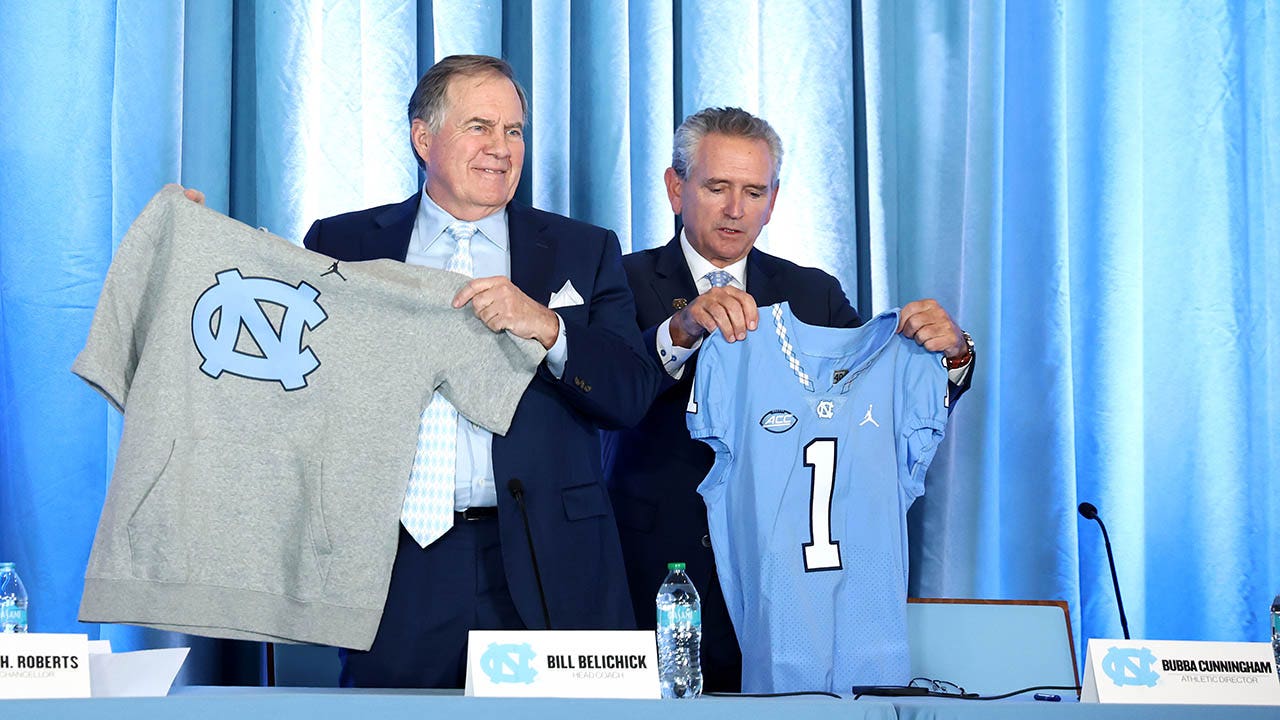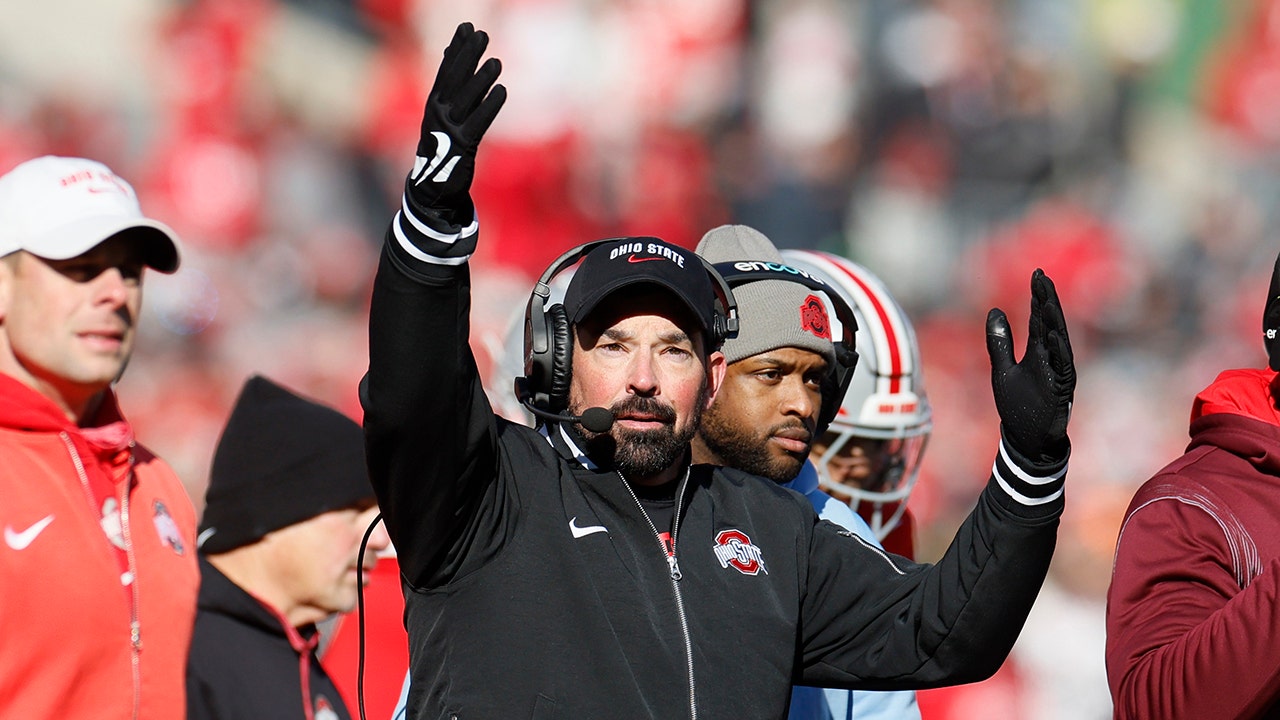A sign displays the types of COVID-19 vaccination doses available at a Walgreens mobile bus clinic on June 25, 2021 in Los Angeles, California.
Mario Tama | Getty Images
Walgreens on Thursday offered soft profit guidance and reported fiscal fourth-quarter earnings that fell short of expectations, as demand for Covid vaccines and tests sinks in the U.S.
The retail pharmacy giant – squeezed by the transition out of the Covid pandemic, a leadership shake-up, its wobbly push into health-care and recent labor pressure from pharmacy staff – has now underperformed Wall Street’s adjusted earnings expectations for two straight quarters. The last time Walgreens posted a consecutive earnings miss was nearly a decade ago.
Still, it posted narrower losses and reported sales growth in its health care business, which is now central to the company’s business strategy. The quarterly results came two days after Walgreens named health-care industry veteran Tim Wentworth as its new CEO following the abrupt departure of the company’s former top executive, Roz Brewer, last month. Wentworth, who will take over on Oct. 23, is tasked with steering the retail pharmacy giant out of a rough spot.
“I have worked with Walgreens as a customer partner, competitor investor and family member, and I understand the challenges ahead for us,” Wentworth, the former CEO of Cigna‘s pharmacy benefits management company, said during the earnings call Thursday.
Shares of Walgreens were slightly higher during early trading Thursday. The stock had been down more than 39% for the year heading into the open.
The company said it expects adjusted earnings per share of $3.20 to $3.50 in the coming fiscal year, which is lower than analysts’ estimate of $3.72. Walgreens expects lower Covid-related sales, along with a higher tax rate and lower sale and leaseback contributions, to offset earnings growth.
Walgreens also sees revenue for the year at $141 billion to $145 billion. Wall Street analysts estimated sales of more than $144 billion.
“We see a continuation of the challenging trends that impacted us in 2023,” interim CFO Manmohan Mahajan said during an earnings call Thursday, noting that the company is “adopting a prudent approach.”
Mahajan added that Walgreens expects to see a higher level of shrink, or lost inventory, in the upcoming fiscal year, which has been increasing for the company over the last several months and continues to represent a serious systemic issue across the retail industry.
But Interim CEO Ginger Graham noted during the call that the company expects over $1 billion in savings during the next fiscal year due to its ongoing cost-cutting initiative, which involves closing unprofitable stores and using AI to drive supply chain efficiencies, among other efforts.
Here’s what Walgreens reported compared with what Wall Street was expecting, based on a survey of analysts by LSEG, formerly known as Refinitiv:
- Earnings per share: 67 cents adjusted vs. 69 cents expected
- Revenue: $35.42 billion vs. $34.78 billion expected
The company reported a net loss of $180 million, or 21 cents per share, for the fiscal fourth quarter. That compares with a net loss of $415 million, or 48 cents per share, during the same period a year ago. Excluding certain items, adjusted earnings per share were 67 cents for the quarter.
Mahajan said the loss was driven by charges for certain legal and regulatory approvals and settlements, and one-time charges related to Walgreens’ cost-cutting program.
Walgreens booked sales of $35.42 billion in the quarter, which is up roughly 9% from the same period a year ago due to growth in its U.S. retail pharmacy and international business segments.
Sales in the company’s U.S. health-care division also grew. Walgreens noted in a release that it is “intently focused on accelerating” that segment’s profitability moving forward.
Walgreens has made significant investments to transform from a major drugstore chain to a large health-care company. But the pharmacy chain is facing a number of challenges in that transition, including a profit squeeze due to softer consumer spending and declining demand for Covid products as patients emerge from the pandemic.
Walgreens is also facing an open revolt among pharmacists and pharmacy technicians, several of whom staged a three-day walkout this week to protest chronic understaffing and other poor working conditions.
Three segments post sales growth
Walgreens’ U.S. retail pharmacy segment generated $27.66 billion in sales in the fiscal fourth quarter, an increase of 3.7% from the same period last year. Comparable sales at individual locations rose 5.7%.
Pharmacy sales for the quarter increased 6.4% compared with the fiscal fourth quarter of 2022, with comparable sales up more than 9% due to price inflation in brand medications and mix impacts.
Total prescriptions filled in the quarter, including immunizations, decreased by 0.5% to 297 million. Walgreens cited a weaker respiratory virus season this fall, which is blunting demand for medications and vaccines.
The company administered roughly 400,000 Covid vaccines in the quarter, down from 2.9 million during the same period last year, according to Mahajan.
Retail sales for the quarter decreased 4.3% compared with the same period a year ago, and comparable retail sales fell 3.3%.
Mahajan said retail revenue was impacted by a decline in demand for over-the-counter Covid tests, weaker cough, cold and flu sales and softer consumer spending. He added that elevated shrink negatively affected sales for health and wellness and personal care and beauty products.
Meanwhile, the company’s international segment racked up $5.78 billion in sales in the fiscal fourth quarter, which is up more than 12% from the same period a year ago.
Mahajan said that reflects growth across all international markets, with sales from the company’s U.K. subsidiary, Boots, growing nearly 11%.
Sales in Walgreens’ U.S. health-care segment came in at $1.97 billion, up from $622 million for the same period last year. Its operating loss narrowed to $294 million from $338 million.
Primary-care provider VillageMD, which includes urgent-care provider Summit Health, saw revenue grow by 17%. Walgreens said that reflects “existing clinic growth and clinic footprint expansion” of VillageMD, which has a network of hundreds of full-service doctors offices across the U.S.
Sales at CareCentrix, which coordinates home care for patients after they’re discharged from the hospital, increased 24% due to additional service offerings and expansion into additional markets.
The health-care segment took a loss of $30 million in the quarter before interest, tax, depreciation and amortization, compared to a loss of $133 million during the same period a year ago.
Walgreens said that “improvement” was driven by growth at CareCentrix and Shields Health Solutions, a specialty pharmacy company included in the health care segment.
But John Driscoll, president of the U.S. health-care business, said that the company is “not satisfied with the near-term return on our investments” in the segment.
“We will continue to grow in 2024 but with a renewed focus on more profitable growth,” he said during the earnings call.
– CNBC’s Robert Hum contributed to this article.
Correction: Walgreens’ total prescriptions filled in the quarter, including immunizations, decreased by 0.5% to 297 million. An earlier version misstated a figure.















































